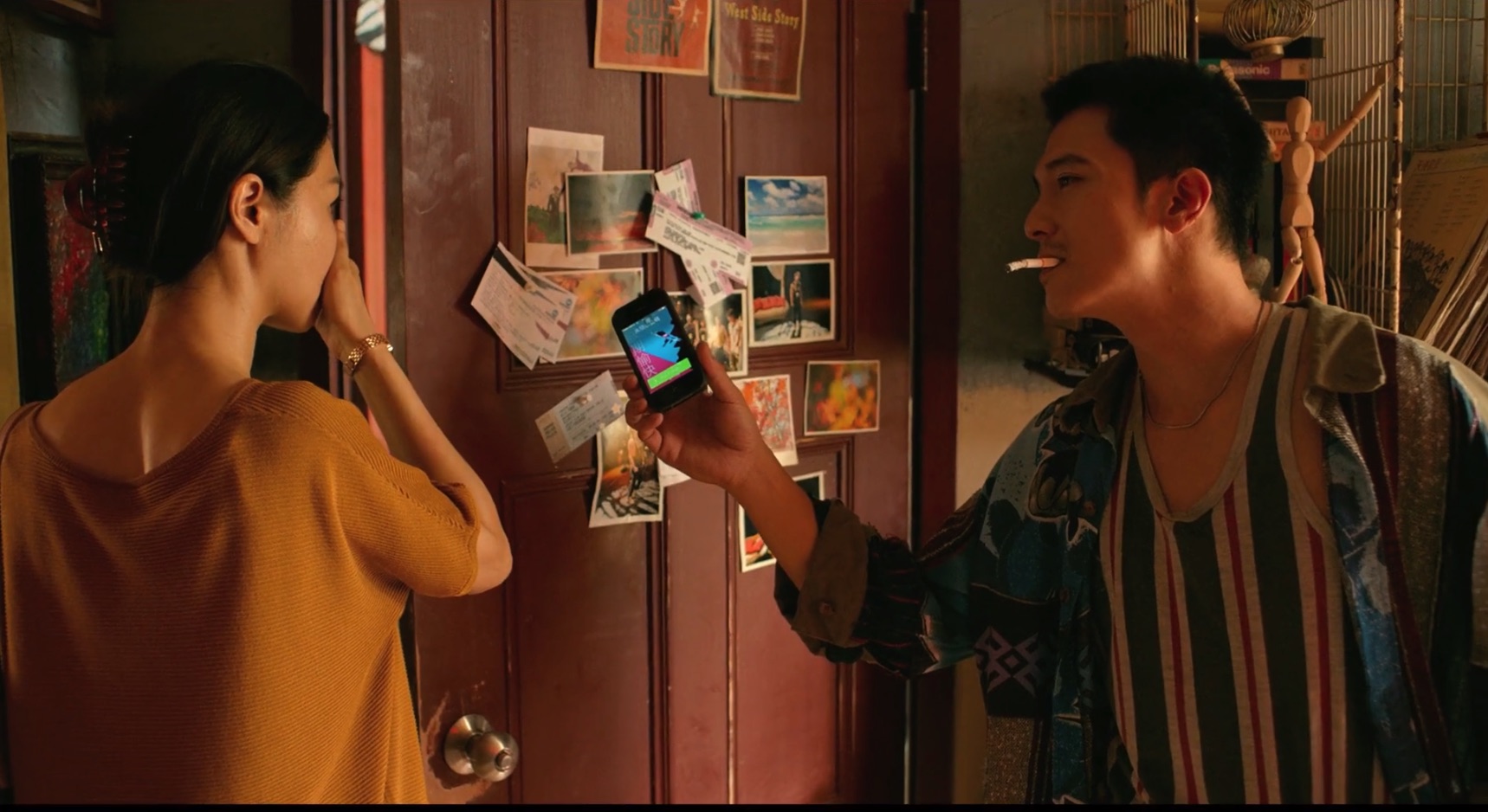Film Friday: Taiwan’s gay-themed ‘Dear Ex’ touches on acceptance, love, and humanity

A pleasant surprise of a movie that’s arrived at the appropriate time.

A mere three months after starting its run in Taiwanese theaters, Netflix has brought the award-winning Taiwanese film Dear Ex (誰先愛上他的 shuí xiān ài shàng tā de) to its streaming service. This gay-themed comedy-drama is the feature directing debut of 52-year-old Mag Hsu (徐誉庭 Xú Yùtíng), a TV screenwriter and theater director. Her co-director, Hsu Chih-yen (许智彦 Xǔ Zhìyàn) — nearly 20 years her junior — is primarily known for his work on hip-hop music videos. They’re an interesting duo, and their impressive collaboration is one of the strongest Taiwanese movies of the last year.
The plot of Dear Ex revolves around the family of Sung Cheng-yuan, a professor who’s recently died. Before his death, Cheng-yuan left his son Cheng-hsi and wife Liu San-lien to live with his boyfriend, Chieh. For the first half of the movie, Cheng-hsi is the main focus. He’s an angsty 14-year-old, and as the camera pans over doodles of toys, photographs, and other knickknacks in the opening scene, Cheng-hsi notes in a voiceover that his father died 95 days prior. The poor kid has barely had time to process his grief before his money-hungry mom drags him along to confront Chieh over Cheng-yuan’s insurance policy.
For reasons unknown, San-lien’s husband listed Chieh, and not their son, as his beneficiary on the insurance policy. Our introduction to San-lien is far from endearing. She mocks Chieh as a “fag” and “mistress,” and before storming out of his apartment, threatens that he has a week to hand over the insurance money. She’s mean and entitled, but San-lien also cares deeply for her son. She forces healthy food on him, constantly vacuums his room, and wants to send him off to Canada to study abroad. Still, San-lien is difficult to get along with, and Cheng-hsi finds her behavior crazy and overbearing.
When she claims to have thrown out a box of things his dad gave him, Cheng-hsi decides that he’s had enough of his mom. He goes to Chieh’s apartment, threatening to jump off the balcony. Chieh has to pull him off, and after an argument erupts between the three, Cheng-hsi refuses to go back home. Instead, he hangs around with Chieh, getting to know his dad’s old boyfriend for the first time. Cheng-hsi doesn’t understand what his dad saw in Chieh. He thinks of Chieh as a “bad guy,” a loser who seems to always be wearing his pajamas. Indifferently, he watches Chieh — a stage director for an amateur theater group — rehearse Happy Holidays, a musical written by his dad 17 years earlier. After the rehearsal is over, Cheng-hsi still refuses to return to his mom. In a fit of anger, San-lien tells her son to never come back, leaving him to stay with Chieh.
Sure enough, the fickle San-lien changes her mind, but Cheng-hsi continues to avoid contact. Worried about Cheng-hsi’s dust allergy, she barges into Chieh’s apartment and cleans the whole place up. On her way out, she bumps into Chieh’s mom, who makes the assumption that San-lien must be her son’s girlfriend. The two ride the bus back together, and their new acquaintance gives San-lien ammunition for blackmail: Chieh’s mom doesn’t know that he’s gay.
In the second half of the movie, Cheng-hsi sort of drops into the background as the center shifts to Chieh, San-lien, and the man they both loved. From a flood of flashbacks, we learn how each met Cheng-yuan and fell in love with him. For the most part, the flashbacks work well, seamlessly blending the past with the present. In one scene, for example, Chieh strums a song on the guitar for Cheng-hsi. Suddenly, the scene transitions into a moment from Chieh’s past, when Cheng-yuan taught him how to play the instrument. These flashbacks are important in developing the three adult main characters, but their frequency is a bit jarring. (By my count, over the course of an hour-and-a-half, there were over a dozen.)
Aesthetically, the movie looks pretty good. There are some beautiful long takes, and the flashbacks have a bright, nostalgic tint to them. I especially enjoyed how Cheng-hsi doodles over some scenes, adding animated graphics like pills, a sword, and jail bars to a window. The performance of Happy Holidays, with its blue colors, assortment of odd stage props, and oddly catching song, is also a highlight. As a whole, Dear Ex is a pleasant surprise, and given Taiwanese voters’ recent rejection of same-sex marriage in November 2018, it’s arrived at an appropriate time. Neither Cheng-yuan nor Chieh are stereotypes. Their relationship is treated with respect, ultimately tying into the movie’s larger themes of acceptance, love, and humanity.
Film Friday is The China Project’s film recommendation column. Have a recommendation? Get in touch: editors@thechinaproject.com





